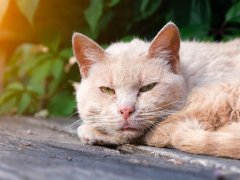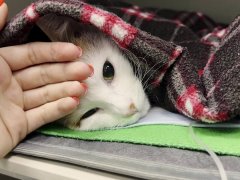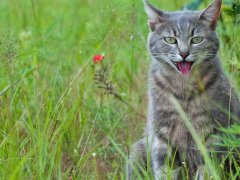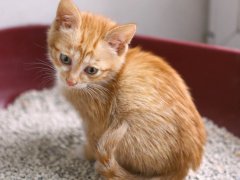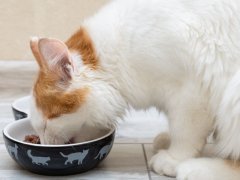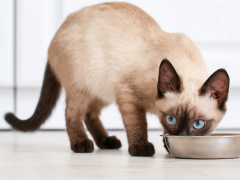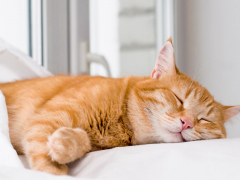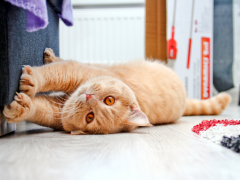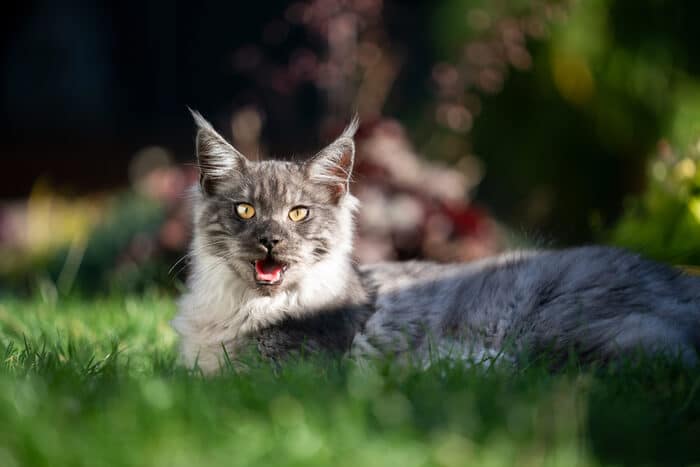
Though dogs pant all the time, panting (rapid breathing with the mouth open) is seen far less frequently in cats. Let’s look at some of the common causes of panting in cats and explore issues that may be cause for concern.
What Causes Cat Panting?
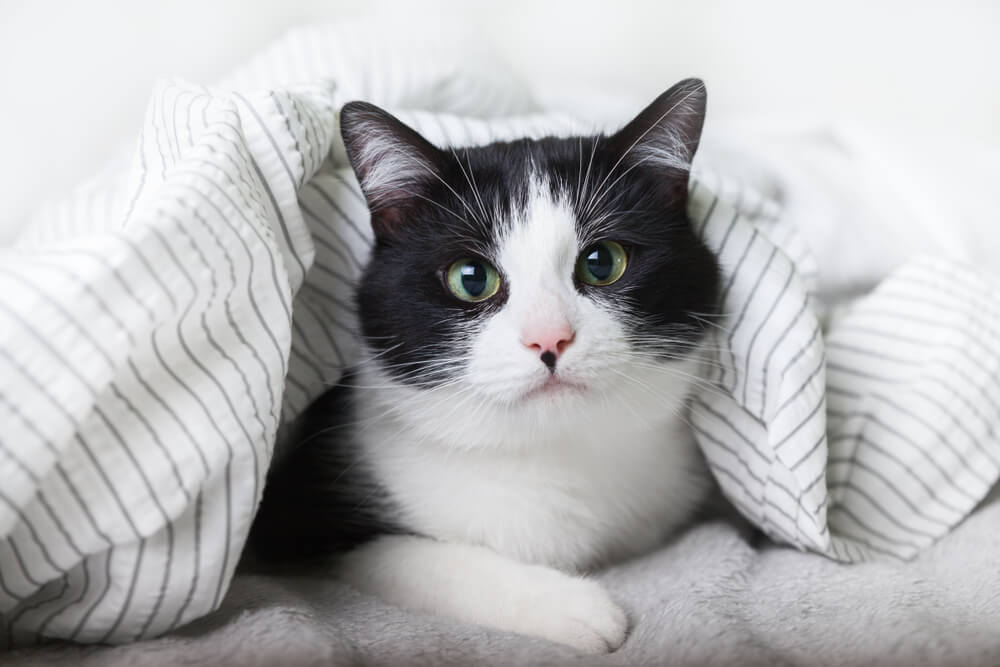
Infrequent, short-lived panting in cats may be normal, but some causes of panting in cats can be very serious, even life-threatening. These are some of the most typical reasons you might see a cat panting:
- Anemia (low red blood cell count)
- Asthma
- Breathing difficulties (labored breathing)
- Bronchitis
- Congestive heart failure
- Exercise (overexertion)
- Heartworm disease
- Overheating or heatstroke
- Pneumonia
- Respiratory infection
- Excess fluid in the lungs or abdomen
Normal Causes of Cat Panting
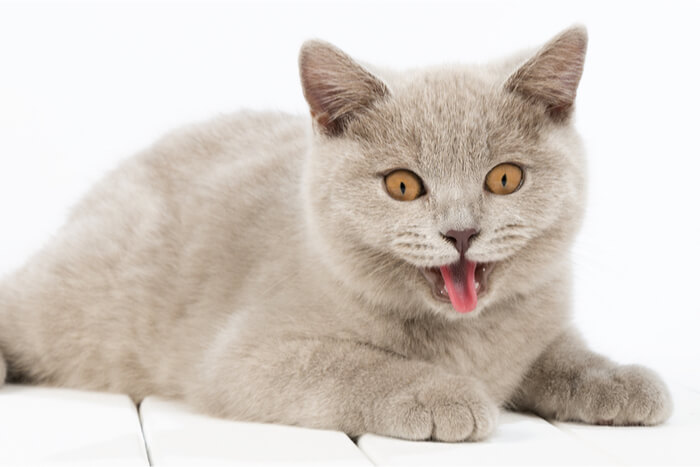
Some kittens might pant briefly after bouts of particularly strenuous exercise.
Though not as often as dogs, some cats pant a little after greatly exerting themselves. For instance, if your cat was racing around the living room for 10 or 15 minutes, she might pause and breathe heavily with her mouth open. This is not necessarily cause for concern, especially if she stops panting somewhat quickly and is otherwise acting normally. This type of panting, called exertional panting, happens more frequently in young kittens.
Cats might also pant if they are overheating. If your cat is in a very warm place, she might pant a little to cool off. Panting like this should resolve fairly quickly, as long as the cat is able to retreat to a cooler spot. If your cat is inside, turn on the air conditioning or a fan, or set out a cold, wet towel for her to lay on.
If she is outside and it’s a hot day, bring her inside where it’s cooler. If she continues panting for more than a few minutes, and is in a very warm place and can’t cool off, she is at danger of heatstroke, a life-threatening condition that requires immediate veterinary attention.
Some cats pant when they are stressed or anxious. Stressful or anxiety-inducing situations for cats include vet visits, riding in the car, moving or traveling, or being followed by another cat that’s stalking them or trying to start a fight. This type of panting should go away once the cat is no longer stressed or scared.
Sometimes cats may do open-mouth breathing when they are aroused by a particularly intriguing scent. Breathing with the mouth open allows the scent to reach the cat’s Jacobson’s organ or vomeronasal organ, an extra scenting organ in the roof of the mouth that’s connected to the mouth and nose via ducts. This behavior might look like panting, but it’s really not and should pass once the cat has had her fill with the scent.
Abnormal Causes of Cat Panting
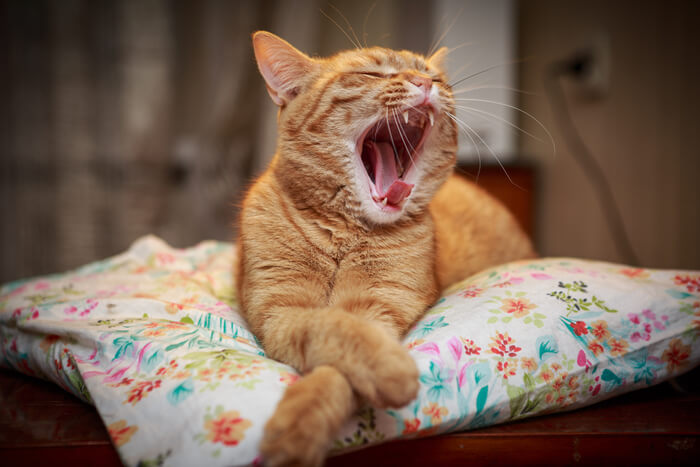
Bad breath in cats is
If a cat’s panting happens routinely, or if it lasts a long time, it could be a sign of a medical problem. Cat panting that occurs without an obvious trigger, such as vigorous play, also signals a more serious health problem.
Sometimes cats pant because they are having difficulty breathing (dyspnea). A cat in respiratory distress may also wheeze, cough, refuse to stand up, or stand with her head hanging low to the ground as she pants.
Many health conditions can cause breathing difficulties in cats, including anemia, asthma, bronchitis, a bacterial respiratory infection, or pneumonia. If you think your cat is having difficulty breathing, it is an emergency. Take her to your veterinarian or an emergency veterinary hospital right away.
If a cat pants after mild exertion, such as after walking up the stairs, it could signal that something is wrong with her heart, such as congestive heart failure. Cats infected with heartworms may also pant or cough. Other signs of heart disease in cats include lethargy (fatigue), poor appetite, and weight loss.
When Should You See a Veterinarian for Cat Panting?
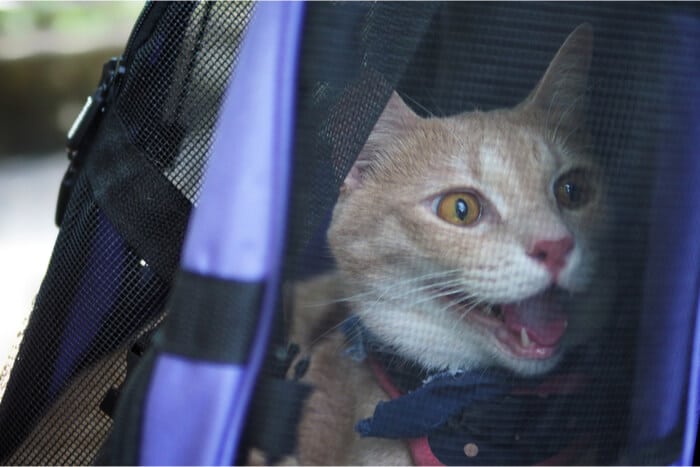
Cats may pant when stressed, for example, when you put them in the carrier to visit the vet.
If your cat is a young kitten and pants occasionally after strenuous exercise, or if your cat pants only a little and otherwise seems fine, you don’t have to be very concerned. However, any panting that happens routinely or doesn’t subside right away needs to be investigated by a veterinarian.
Likewise, make an appointment right away if your cat is panting and also showing other signs that something might be wrong (not eating, lying around, experiencing vomiting or diarrhea, drooling, or anything else abnormal). If your cat is struggling to breathe, it’s an emergency. Do not put off having breathing issues checked out by a veterinarian, even if it’s the middle of the night.
Keep your cat as calm as possible (e.g., play calming music) during the car ride to the vet’s office. You don’t want your cat’s breathing problems to get worse because she’s stressed or anxious in the car.
It would help to call your vet’s office or the emergency hospital when you leave the house. That way, your vet and their staff can be prepared with emergency treatment, just in case.
Your veterinarian will conduct a complete physical exam, which will include taking your cat’s body temperature, checking the respiratory rate, and listening to the heart and lungs. Depending on the findings, your vet might recommend blood work, chest x-rays, or other tests to determine if your cat’s panting is being caused by a more serious medical issue.
Cats that are having extreme breathing problems need to be stabilized before being fully examined. Stabilizing treatments include oxygen therapy, intravenous fluids, and medications.
What Is the Treatment for Cat Panting?
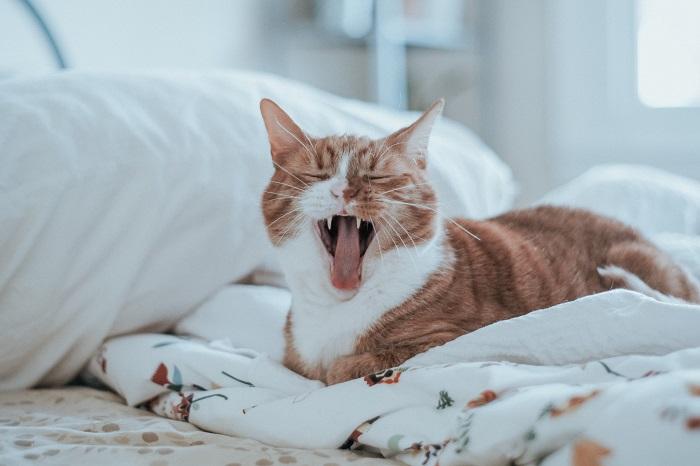
Treatment for cat panting depends on what’s causing it. For example, a bacterial respiratory infection would be treated with antibiotics. Steroids would be prescribed for bronchitis to reduce inflammation in the lungs.
Your veterinarian will recommend a treatment plan after reviewing the diagnostic test results and determining the cause of your cat’s panting.
Frequently Asked Questions
Why is my cat panting with her mouth open?
Mild, short-lived panting or open-mouth breathing can be a normal response to extreme exercise, overheating, or stress or anxiety. Panting with the mouth open can also be a sign of a medical issue, including respiratory distress (difficulty breathing) or a heart problem. If the panting or open-mouthed breathing continues, seek veterinary care right away.
Is panting a sign of stress in cats?
Cats may pant when extremely stressed, anxious, or fearful. Some cats pant when they visit the veterinarian, travel, or are being harassed by other pets. The panting should stop after the stressful event is over.
Is it normal for cats to pant after playing?
Some cats, especially young kittens, occasionally pant briefly after extremely active play. Such panting shouldn’t occur frequently and it should go away quickly once the cat stops playing. If your cat frequently pants after vigorous play or exercise, pants during moderate exercise (for instance, walking up the stairs), or pants for a long time after playing, make an appointment to see your veterinarian to make sure she isn’t suffering from a medical issue.
